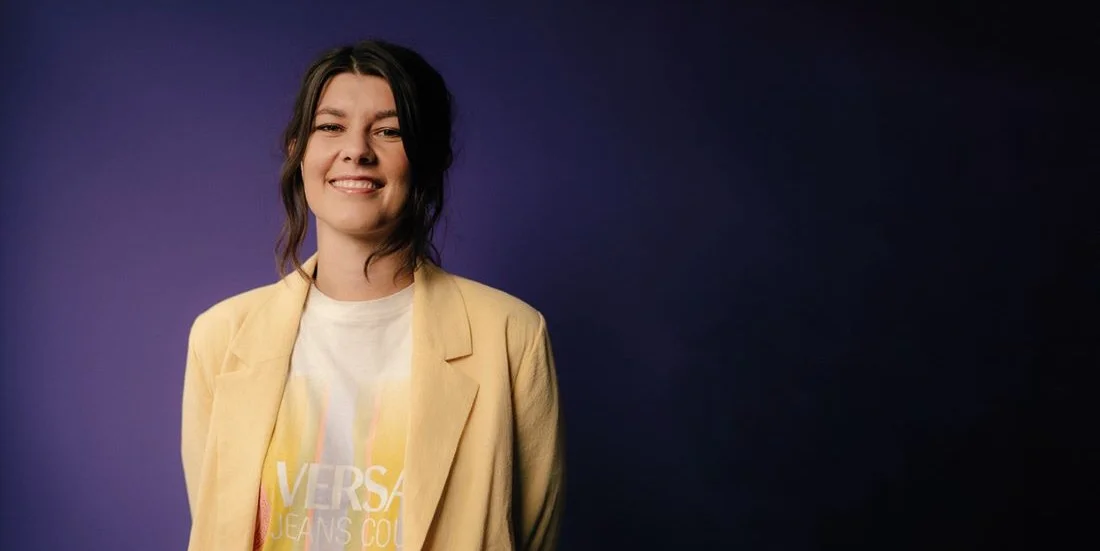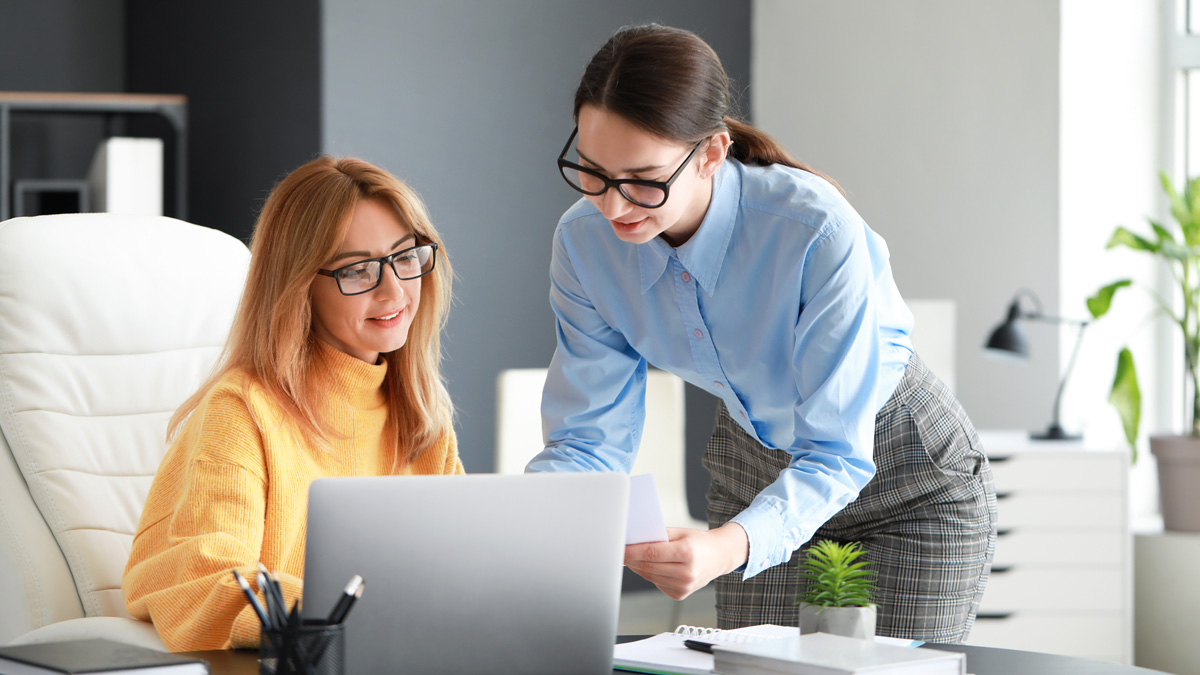 Lena Jüngst is the co-founder, Chief Evangelist and inventor of air up, the world’s first drinking bottle that flavours water just by scent. After developing a prototype for air up® during her Bachelor Thesis, she launched the product to market in July 2019.Since then, Lena has featured within Forbes DACH 30 under 30, and air up has served more than one million customers across Europe. Lena chatted to us about air up’s journey from prototype to becoming a disruptive force in the soft drinks industry.
Lena Jüngst is the co-founder, Chief Evangelist and inventor of air up, the world’s first drinking bottle that flavours water just by scent. After developing a prototype for air up® during her Bachelor Thesis, she launched the product to market in July 2019.Since then, Lena has featured within Forbes DACH 30 under 30, and air up has served more than one million customers across Europe. Lena chatted to us about air up’s journey from prototype to becoming a disruptive force in the soft drinks industry.Can you tell us about your background and what you were doing before you founded air up?
My background is rather creative, not the typical business background. I was born and raised in Munich and studied Product Design at the University of Schwäbisch Gmünd.You created the prototype for the air up bottle whilst studying at the University of Schwäbisch Gmünd – can you tell us more about this experience?
My Co-founder, Tim Jäger and I both wrote our Bachelor thesis under the name “Neuroscience Meets Design”. At the time, we were watching many Ted Talks on neuroscience and then stumbled across the so-called ‘retronasal smell’ – a taste which is transported through the air. We were very excited about this new knowledge, and immediately had some ideas in our heads that could perhaps be implemented with this phenomenon, and that could, therefore, provide flavour without any additives.Together with Tim, I then started looking for the perfect project for our Bachelor Thesis. This not only led to the idea of designing a drinking bottle that can flavour water just by scent, but also to some crazy first prototypes. It started with a room scent! We put a straw into it, brought the straw to our mouth and at the same time were drinking from a glass of water with a second straw.Do you think the demand for alternatives to sugar-filled fizzy drinks will continue to grow? What are the barriers preventing take-up of healthier alternatives?
Yes, I definitely think so! Due to evolution, we humans basically can’t resist flavourful food and beverages and as such, can often end up drinking less tap water as it’s quite bland in comparison to other drinks you may find in the supermarket. Yet with air up®, people don’t have to decide between health and flavour, it offers the possibility to experience taste without adding sugar or any other additives to their diet.I think in terms of healthier alternatives, we must think new and offer new products that are attractive choices for consumers. Life is short, we don’t want to miss the fun part, so a healthy alternative must be fun, easy and simply not worse than the unhealthy one.What have been the biggest challenges you’ve faced in your career and how have you overcome them?
Well, founding a company, in general, is really challenging! But the biggest challenge was in the beginning, to step over from my creative-work bubble into the startup world. This was quite a big change for me, and I realised I have a completely different way of thinking than people from the business world. I overcame this together with my team, as I realised that the more diverse the team is, the better the ideas, products and company.What impact has Brexit had on air up and your industry?
Brexit hugely impacted our UK market entry in June 2021 (and even delayed it).We found that there have been lots of question marks from the UK government when dealing with EU companies operating in the UK post-Brexit due to the changing regulations. As we were newly entering the market, we had the fundamentals, i.e. VAT registration number, new customs regulations, etc. to deal with. For example, we had to wait for our VAT number for several months – but before Brexit, this would have been applied and distributed within two weeks.How were you affected by the pandemic?
This is hard to tell as we are still such a young company. But I really think our adaptability played a big role in how we reacted and were impacted by the pandemic.For example, we have been a remote-first company since the beginning, meaning we did not have to build a completely new work infrastructure for our employees, as they are all used to working from home, so the lockdowns did not affect our normal workflow too much.On top of that, consumer behaviour changed during the pandemic – people would buy online much more than before, and some even decided to fight forced sedentarism by adopting a healthier lifestyle: paying more attention to their nutrition, exercise and hydration habits to prevent weight gain.What can we do to better support female entrepreneurship?
In my opinion, the real necessity is to promote good ideas and entrepreneurship altogether, supporting more creative profiles and mentoring them on how to step into a business/startup world, which indeed, and unfortunately, is still male-dominated.I have a personal theory here: like with everything else, we tend to like and perpetuate what we know or what is familiar to us. In a business and entrepreneurial context, still very much dominated by men with a background in business, that would imply that investors tend to favour profiles that resemble them. Basically, what I think is that we need more female investors to support and foster female founders.You’ve doubled your workforce since the beginning of the year and your revenue in 2021 more than doubled that of 2020 – how have you managed to achieve such substantial growth?
In the beginning, we almost couldn’t meet the high customer demand. Our product offers something very attractive for the generation of tomorrow – combining responsible consumption with an attractive product experience.I believe due to our innovative idea and a healthy dose of pragmatism, we managed to grow step by step – first in the German-speaking countries and then across Europe. We are now active in nine different markets and our team consists of 240 talented members. They are all part of the success, and everyone is helping to achieve this substantial growth – that makes me very proud.How important is sustainability in the soft drinks industry and what needs to happen to make the sector eco-friendlier?
I would say sustainability is important in every industry! But in the soft drinks industry, the problem is the lack of innovation. Our product, for example, is sustainable by design – and this is the key! I think you have the biggest leverage if you already think about reducing waste and emissions while concepting the new product. The later in the supply chain that innovative thinking happens, the lesser the impact.It is great to see that many brands now, for example, only use R-PET to ensure single-use plastic bottles are made of recycled materials, but this will not change the horrifying levels of plastic pollution in our oceans. Therefore, we need to think of ways to make tap water more attractive. It’s the cheapest, it’s the healthiest and the most sustainable way to consume drinks.One big sustainable downside of the soft drinks industry is the carbon-heavy distribution. Every brand and every step that is taken to help reduce waste and carbon emissions within the industry can make a huge difference, making the whole sector more eco-friendly.What makes a good/bad leader?
I believe that there are many different ways of being a good leader – every manager at our company brings their own leadership style. But in general, I think good leadership is about transparent communication, being human, being inspiring and taking more often the right decisions for the team.Tell us about your latest round of funding
We successfully closed our last funding round in September last year and raised more than €40m (£34m). This only happened after completing our Series A fundraise, at the beginning of 2021.The investment round was led by Five Seasons Ventures (co-led by PepsiCo, Ippen.Media and Oyster Bay) and was based on our rapid growth across Europe. With this latest injection of growth capital, we will accelerate international expansion across Europe (we already launched in the Swedish Market in March) and the United States within this year.What are your plans for the future?
We now know that we must change the way we consume, develop and produce products. Unfortunately, this is nothing we can change from today to tomorrow, but I believe that companies should play a major part in it. My plan for the future is to develop more products that make it easier for people to consume in a more responsible way.Related and recommended

The travel tour entrepreneur’s business is thriving after the pandemic because she listened to customers

Empowering employees to take ownership of decisions is vital to success, but they must accept the privilege and responsibility too

Fashion entrepreneur Dessi Bell explains why customers are looking for something different when they shop on the high street

Think assistants are just admin managers? Think again. They might be your greatest business asset

